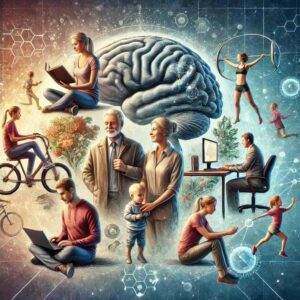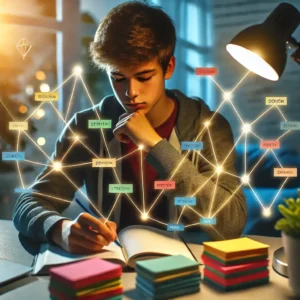🌍 The Paradox of Modern Connection
In today’s world, technology has made staying connected easier than ever. Social media, smartphones, and digital tools bridge distances in seconds, enabling global communication at the touch of a button. Yet, despite this unprecedented connectivity, millions of people feel more isolated and disconnected than ever before. 😔💭
This isn’t just a rare issue—it’s a growing challenge. Numerous studies reveal an alarming rise in loneliness across the globe. The more “connected” we become digitally, the more disconnected we often feel emotionally.

The Good News? 🌈
Loneliness isn’t a personal failing, nor is it a permanent state. It’s your brain’s way of signalling a need for connection—a reminder that humans are wired for meaningful relationships. 🧠💞 Understanding this signal is the first step toward reclaiming a sense of belonging and purpose. 🌟
Thanks to modern breakthroughs in neuroscience and psychology, we now have evidence-based strategies to not only combat loneliness but also enrich your life with fulfilling, genuine connections. These tools help you harness the power of your brain, giving you the clarity and confidence to take actionable steps toward a more connected life. ✨💪
This Isn’t Just Another Article About Loneliness 🌟

It’s your guide to understanding how your brain works—and how to harness that knowledge to create lasting, meaningful change in your life.
Here’s what you’ll discover:
🧠 Why Loneliness Happens
Learn how loneliness impacts your mental and physical health and why it’s more than just an emotional state—it’s a signal your brain uses to guide you toward connection.
✨ The Science of Connection
Explore how your brain is wired for relationships, growth, and belonging, and why meaningful connections are key to living a fulfilling life.
🔄 Step-by-Step Practices
Get actionable, science-backed techniques to reconnect with others in ways that feel natural, rewarding, and sustainable.
🌈 The Transformative Power of Relationships
Discover how building deeper, genuine relationships can improve your resilience, boost happiness, and enhance your overall well-being.
What You’ll Gain 🌟
By the end of this guide, you’ll not only understand how to reduce loneliness but also gain the tools to thrive and live a more connected, purposeful life. Let’s dive in and unlock the power of meaningful connection. 💪💞✨
🧠 Why Loneliness Happens
Loneliness isn’t about being alone—it’s about feeling disconnected, even when surrounded by others. It’s your brain’s way of sending a signal that your fundamental need for meaningful relationships isn’t being met. 💔🧠

In today’s world, however, this natural drive for connection often clashes with modern life. 🌍
Modern Challenges to Connection
1️⃣ The Illusion of Connection:
Social media and technology create a false sense of interaction. While scrolling through Instagram or liking a post may feel engaging in the moment, it lacks the depth and authenticity of real, meaningful relationships. 📱💬 Often, it leaves us feeling more disconnected and empty than before.
2️⃣ Time Scarcity:
Our packed schedules and endless to-do lists make it difficult to carve out time for genuine, face-to-face interactions. Instead, we settle for quick texts or surface-level conversations, leaving our connections feeling shallow and unfulfilling. ⏳🤝
Loneliness as a Signal
Loneliness isn’t a flaw or weakness—it’s your brain’s way of saying, “Something needs attention.” Just as hunger tells you to eat 🍎 or fatigue signals the need for rest 💤, loneliness is a cue to seek the meaningful connections your brain craves.
By understanding this signal, you can take intentional steps to reconnect with others and foster the deep, fulfilling relationships that bring joy and purpose to life. 🌿✨
🌱 How Loneliness Impacts Your Health
Loneliness isn’t just an emotional experience—it has a profound effect on your entire body. Chronic loneliness can trigger a cascade of physical and mental health challenges, making it essential to address. 🧠💔

The Ripple Effects of Loneliness
1️⃣ Increased Stress:
Persistent loneliness raises cortisol levels—the body’s stress hormone—leaving you feeling tense, anxious, and constantly fatigued. 😟💤
2️⃣ Weakened Immune System:
Prolonged isolation disrupts your body’s natural defenses, making you more susceptible to illnesses and infections. 🛡️🤒
3️⃣ Serious Health Risks:
Research by Dr. Julianne Holt-Lunstad reveals that chronic loneliness significantly elevates the risk of heart disease, depression, and even early mortality. Loneliness has been shown to have the same health impact as smoking 15 cigarettes a day. ⏳💔
The Silver Lining 🌟
The good news? When you understand how loneliness affects your brain and body, you gain the power to reverse these effects. 🌿✨ By addressing the root causes and fostering genuine connections, you can not only combat loneliness but also improve your overall well-being—physically, mentally, and emotionally. 💪❤️
🌟 The Science of Connection
Understanding how our brains function is essential for unlocking the tools to overcome loneliness and build meaningful connections. Here are the key things to know about how your brain operates:
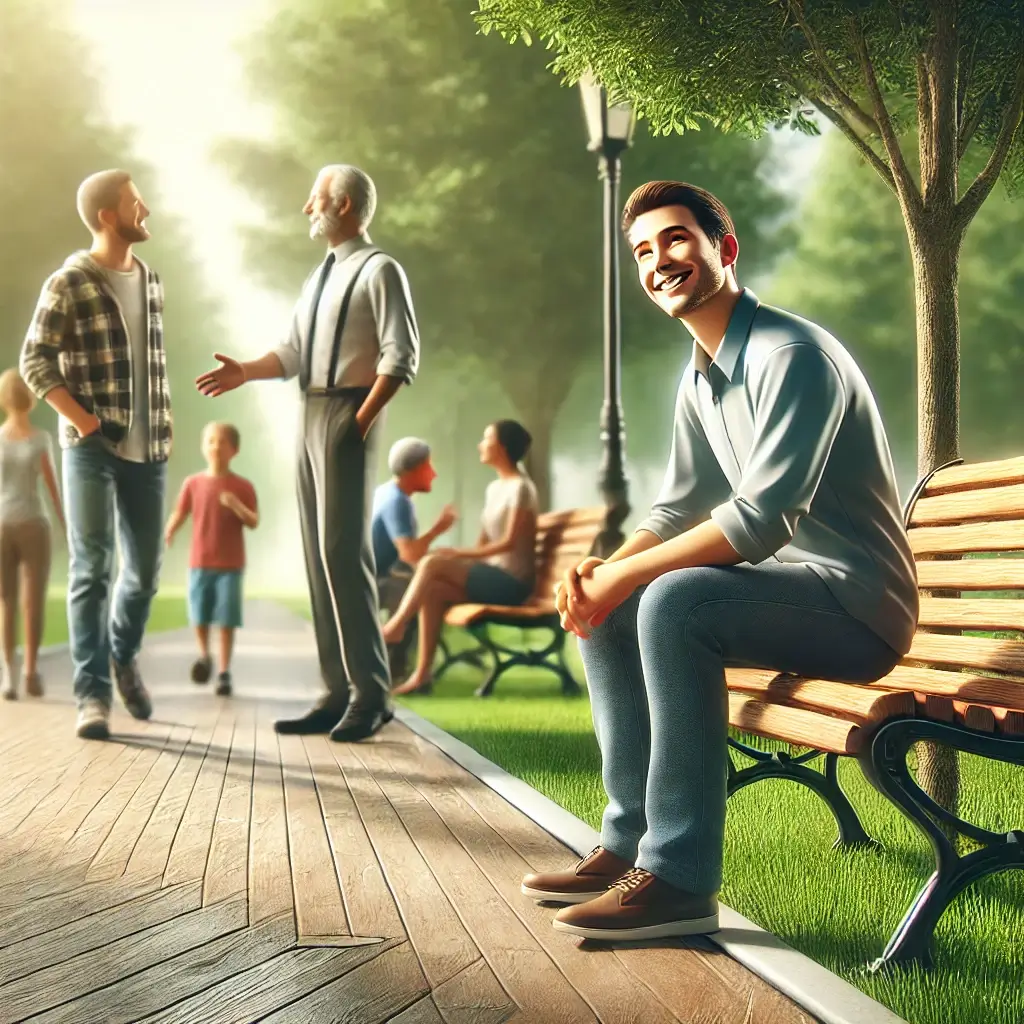
1️⃣ Your Brain is Wired for Connection
From an evolutionary perspective, being part of a group was critical for survival. This wiring still drives us today, making relationships a core need—not just a want. Your brain naturally seeks connection as a way to feel safe, supported, and fulfilled. 🧠💞
2️⃣Predictive Processing (PP): Your Brain as a Prediction Machine
Your brain uses past experiences to anticipate future outcomes. If you’ve faced rejection or isolation, it might predict similar outcomes in future interactions, creating hesitation or fear. The good news? You can rewire these predictions through small, positive social experiences that build confidence. 🔄😊
🔑 Key Insight:
Positive, small social interactions can retrain your brain to expect better outcomes. Smiling at a neighbour, chatting with a barista, or sending a friendly text can gradually replace negative predictions with hope and openness. 🌟
3️⃣ Growth Through the Zone of Proximal Development (ZPD)
Your brain grows best when you take on challenges that are slightly beyond your comfort zone. This means reconnecting socially doesn’t have to be overwhelming—small steps, like a simple smile or short conversation, can help you gradually rebuild confidence and connections. 🌱✨
🔑 Key Insight:
Gradual progress builds confidence. For example:
- Smile at a stranger. 😊
- Join a small, casual group activity. 🤝
- Reach out to someone you trust for a chat. ☎️
These small actions help you ease back into social interactions without feeling overwhelmed, creating a foundation for deeper connections over time. 🌱
🎯 The Transformative Benefits of Reconnection
Reconnecting with others isn’t just about reducing loneliness—it’s about unlocking a cascade of positive changes in your overall well-being. Genuine relationships have the power to transform both your mental and physical health while enriching your life with joy and purpose. 💞✨

The Life-Changing Benefits of Connection
1️⃣ Improved Mental Health:
Meaningful social interactions help reduce stress, anxiety, and depression, while fostering emotional resilience and a sense of stability. 🧠💪
2️⃣ Enhanced Physical Health:
Strong relationships are linked to lower blood pressure, a more robust immune system, and even a longer life expectancy. Research shows that social connection is as vital to health as regular exercise or a balanced diet. 🛡️💓
3️⃣ Greater Life Satisfaction:
Being part of a community or cultivating close relationships brings joy, purpose, and a deeper sense of belonging. When you feel connected, life feels richer and more fulfilling. 🌟🌍
🌟 Step-by-Step Practices to Feel More Connected and Reduce Loneliness
Feeling more connected and overcoming loneliness doesn’t happen overnight, but small, intentional actions can lead to big changes. Here are practical, science-backed steps you can take to rebuild meaningful connections and improve your well-being:
Step 1: Reflect on What You Love 🎨❤️
Why It Matters:
Engaging in activities you love naturally lifts your mood and creates opportunities for organic, enjoyable connections. When you’re doing something you’re passionate about, conversations and interactions feel effortless and meaningful.
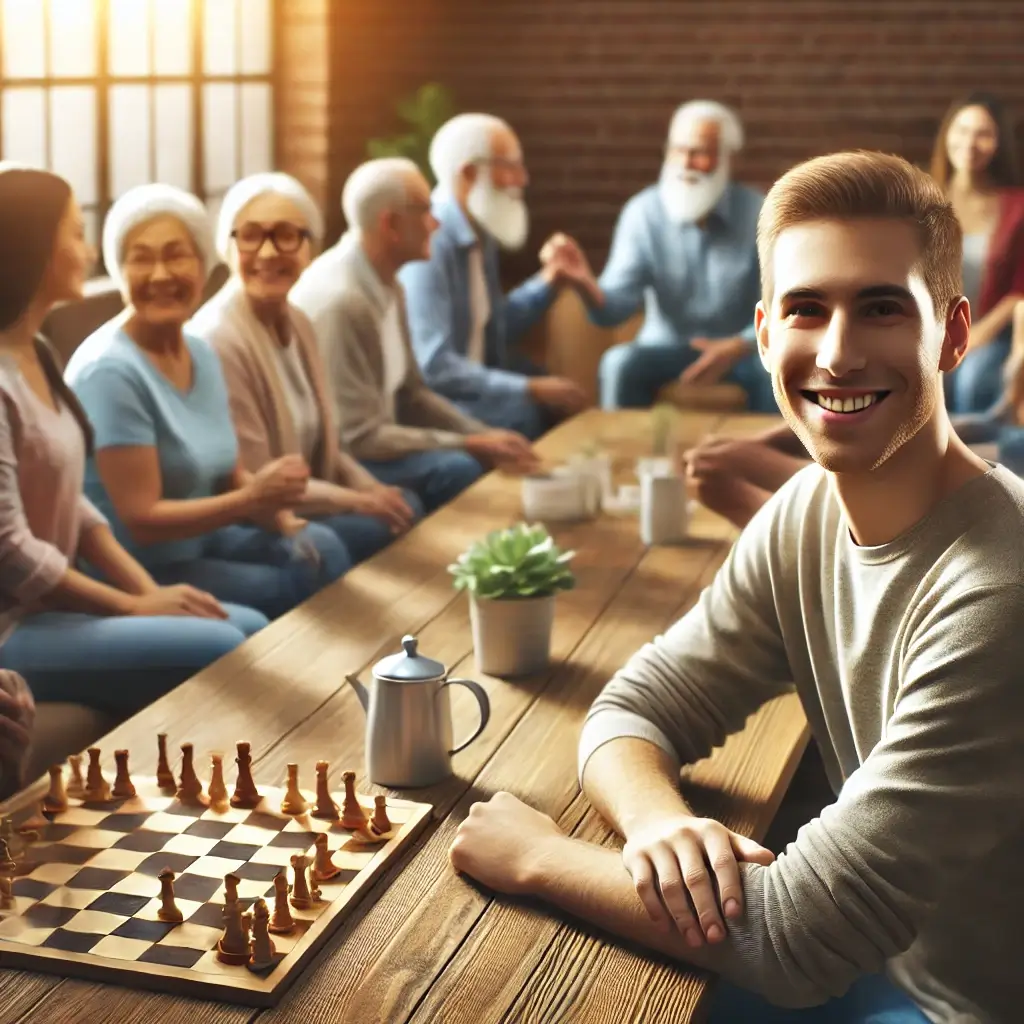
What to Do:
1️⃣ Reflect on activities or hobbies that bring you joy, such as cooking, hiking, painting, or playing sports.
2️⃣ Identify one activity you’d enjoy exploring with others, whether it’s in-person or online.
Example:
If you love reading, consider joining a local book club or an online community focused on literary discussions. Sharing your passion with like-minded individuals can help foster genuine connections and deepen your sense of belonging. 📚✨
Step 2: Find Local or Online Communities 🌐💬
Why It Matters:
Shared interests create instant common ground, making social interactions feel natural and less intimidating. Whether in person or online, connecting with like-minded individuals can help you form relationships that feel genuine and rewarding.
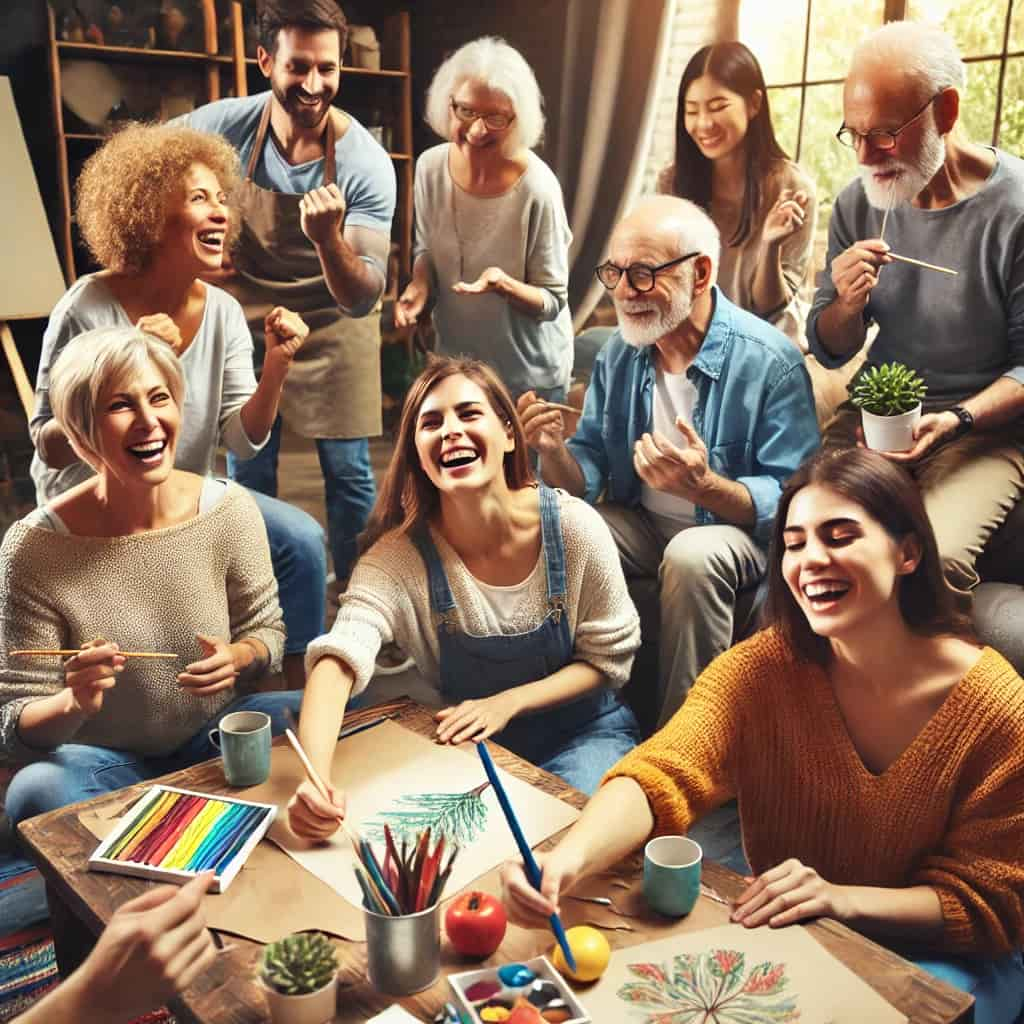
What to Do:
1️⃣ Use platforms like Meetup, Facebook, or Eventbrite to find local or virtual groups that match your hobbies and interests.
2️⃣ If in-person events feel overwhelming, start with online communities or forums where you can participate at your own pace.
Example:
If you’re into fitness, join a beginner-friendly workout class at a local gym or an online forum where you can share your progress, exchange tips, and connect with others on the same journey. 🏋️♀️💪
Exploring these communities opens the door to new friendships while making social interactions more enjoyable. 🌟✨
Step 3: Take the First Step 👋✨
Why It Matters:
Starting is often the hardest part, but once you take that first step, the momentum builds naturally. Taking action—no matter how small—creates opportunities for connection and boosts your confidence.

What to Do:
1️⃣ Commit to attending your first event or introducing yourself in an online group.
2️⃣ Remember that most people are there to connect too, and they’re likely just as excited (or nervous) as you are.
Example:
Feeling nervous about joining a hiking group? Start by attending a casual meetup and focus on enjoying the shared activity, like the beautiful scenery or the sense of movement, rather than worrying about making conversation. 🌄🚶♂️
Taking that initial step is the gateway to building meaningful relationships. Trust the process—you’re not alone! 🌟💞
Step 4: Build Consistency 🗓️🌱
Why It Matters:
Familiarity breeds comfort and connection. Repeated interactions with the same people help build trust, ease social anxiety, and foster a genuine sense of belonging over time.
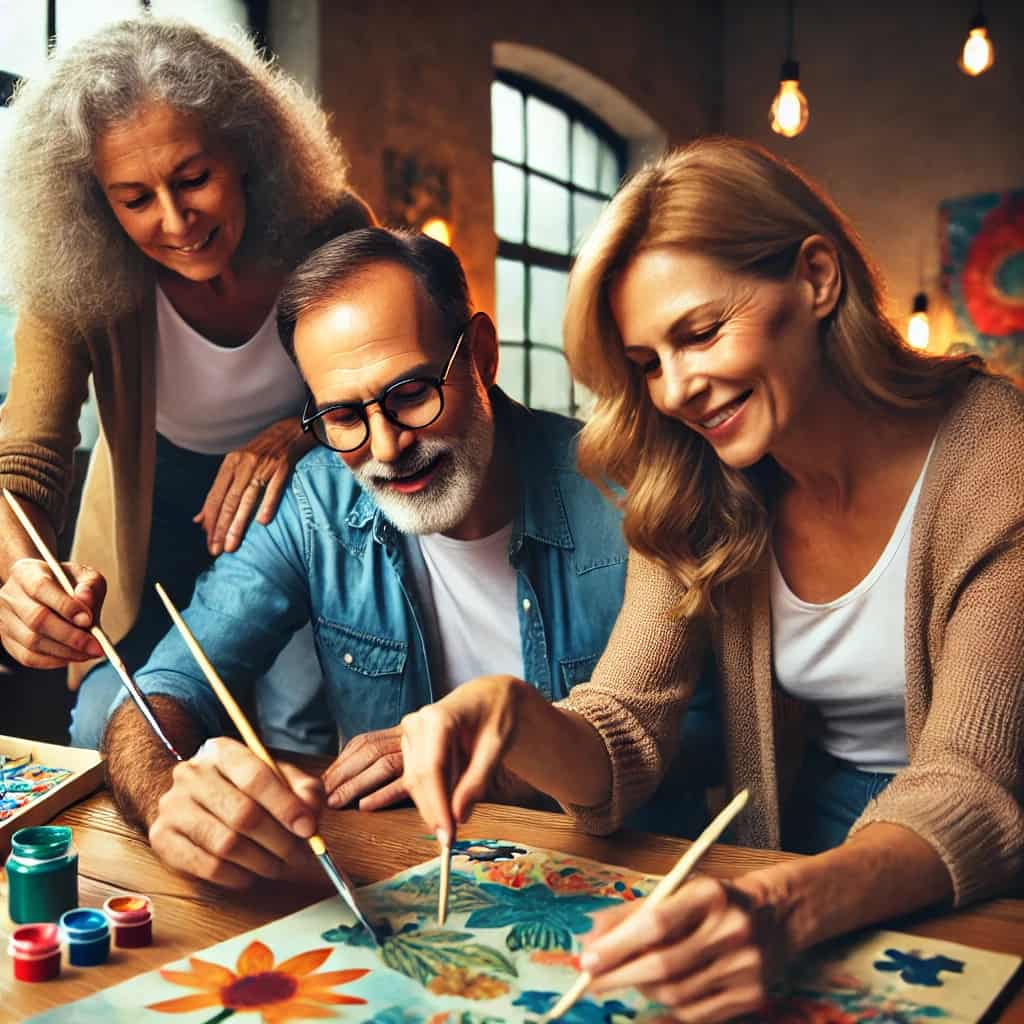
What to Do:
1️⃣ Commit to attending 2–3 gatherings or group sessions to gradually ease into the environment and feel more comfortable.
2️⃣ Set small, achievable goals for each event, such as chatting with one new person or asking a question during the activity.
Example:
If you’ve joined a pottery class, focus on building rapport with one or two classmates each week. Compliment their work, share tips, or simply enjoy casual conversations about the class. Over time, these small interactions can grow into meaningful relationships. 🎨🤝
Consistency is key—it’s through these regular connections that a true sense of community begins to form. 🌟✨
🌈 Why Gradual Progress Works
Reconnecting doesn’t have to feel overwhelming. Taking small, consistent actions is more sustainable, less intimidating, and ultimately more rewarding than trying to tackle everything at once. 🌱✨

1️⃣ The Zone of Proximal Development (ZPD):
Gradual progress allows you to take on challenges that are just beyond your comfort zone. These manageable steps help you grow confidence without feeling overloaded. 🚀💪
2️⃣ Positive Feedback Loops:
Every successful interaction reinforces your brain’s motivation to keep going. Positive experiences create a cycle of encouragement, making it easier to approach new situations with optimism and ease. 😊🔄
By focusing on small, achievable actions, you can steadily rebuild your sense of connection, making the process feel natural and enjoyable. 🌟💞
✅ Do’s and Don’ts for Building Connection

✅ Do: Focus on activities you genuinely enjoy. 🎨🏃♂️
❌ Don’t: Rush relationships—connection takes time. ⏳
✅ Do: Attend regularly to build trust and comfort. 🗓️
❌ Don’t: Overcommit—start small to avoid feeling overwhelmed. 🚫
✅ Do: Reflect on positive experiences to reinforce rewarding interactions. 🌟
❌ Don’t: Compare your progress to others—your journey is unique.
🌟 Final Thoughts: Connection Starts with a Single Step

Loneliness doesn’t have to define your life. By understanding how your brain works and embracing small, intentional actions, you can move from isolation to connection. 🧠💞
Start small—whether it’s joining a group, trying a new activity, or simply offering a smile to someone. 😊 Each step you take, no matter how small, brings you closer to a life filled with joy, purpose, and meaningful relationships. 🌈
Remember: Connection begins with you. Every effort you make, no matter how modest, is a step toward a brighter, more connected future. Every smile, every conversation, and every shared moment matters. 🌟✨
Found this guide useful? Help others discover the Getting to Give Project by sharing it. Your support allows more people to access cutting-edge, science-backed resources at no cost. 🌟 Thank you for reading!
📚 Further Reading
● Julianne Holt-Lunstad’s Research on Social Isolation and Health: Dr. Julianne Holt-Lunstad is a renowned psychologist and neuroscientist whose work focuses on the health implications of social isolation and the importance of meaningful social connections.
Her research has highlighted the significant impact of social relationships on long-term health outcomes. Julianne Holt-Lunstad
● Predictive Processing Theory and Social Interaction: Predictive Processing (PP) theory explores how the brain anticipates sensory input to facilitate perception and action.
This framework has been applied to understand social cognition, including how we predict and interpret others’ behaviors. For a comprehensive overview, consider the chapter “Predictive Processing Theories” in the book “Philosophy and Predictive Processing.” SpringerLink
● Zone of Proximal Development: The Zone of Proximal Development (ZPD) is a concept introduced by psychologist Lev Vygotsky, referring to the range of tasks that a learner can perform with guidance but not yet independently.
This concept emphasizes the importance of social interaction in cognitive development. For an in-depth exploration, refer to the article “The Zone of Proximal Development in Vygotsky’s Analysis of Learning and Instruction.“














